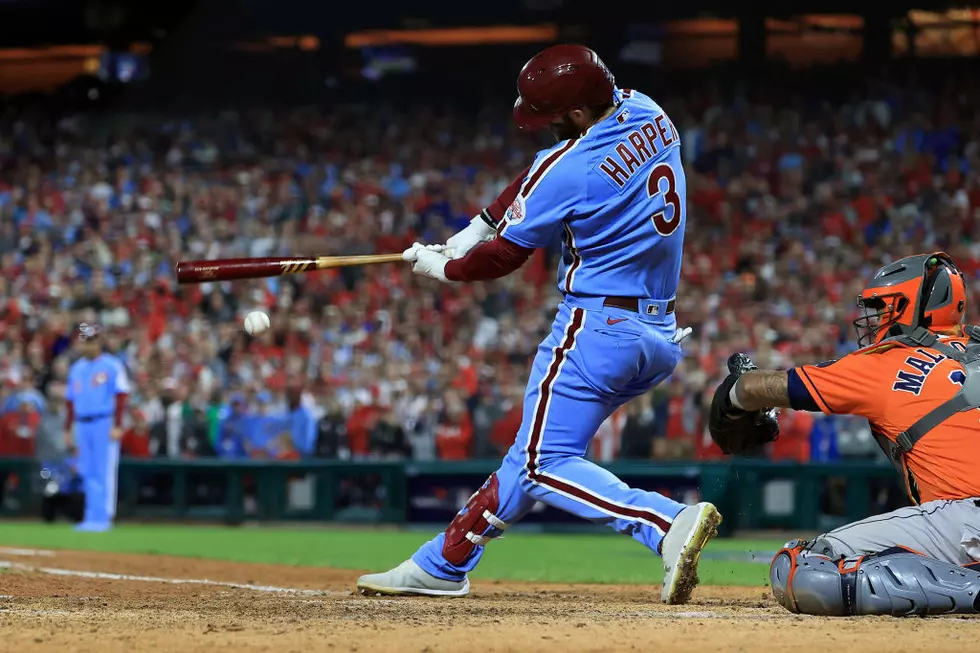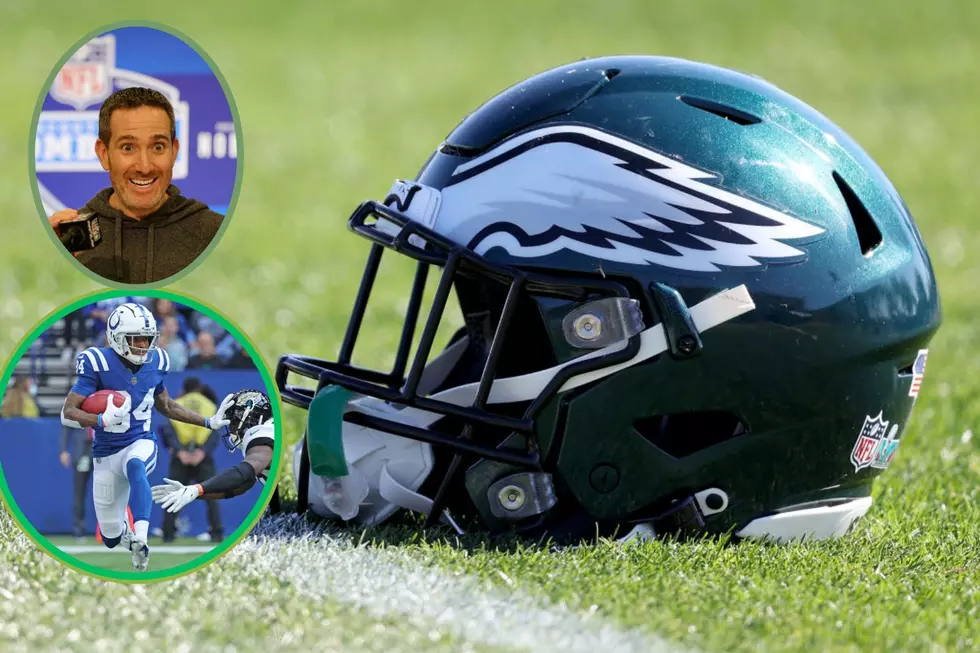
Jenkins Wants to Finish His Busy Season
BLOOMINGTON, Minn. (973espn.com) - Malcolm Jenkins has been on this stage before as a rookie with the New Orleans Saints.
Things are different now both on and off the field, however.
When Jenkins arrives at U.S. Bank Stadium on Sunday for his second Super Bowl appearance, he will do so as a star with the Philadelphia Eagles and one of the highest-profile players in the entire NFL when it comes to the idea of social-justice reform that is so important to many African-American players in a predominately African-American league.
And with Jenkins' stature in the game so comes the attention in the form of reporters and television cameras.
At 30, Jenkins is more relaxed that he was as a rookie first-round pick out of Ohio State and will easily pivot between talking about the difficulty of dealing with Rob Gronkowski on the football field to the inequality of prison sentences off of it.
The risers high-profile Eagles players were placed on during media availability at the Mall of America almost served as a symbolic gesture for Jenkins, who sees his role in life as someone who needs to use the platform he has for causes he believes in.
“I didn’t realize the platform could be this big until Colin Kaepernick took a knee,” Jenkins said. “When he did that, it was kind of an aha moment to me."
Jenkins saw the publicity one simple act could generate for someone with a high-profile and started his own form of protest during the national anthem, raising his fist in the air, something that was later amplified by his teammate Chris Long, who would place his arm around Jenkins to show unity between races.
"The amount of coverage and conversation that built around it, that’s when I truly realized how much influence we have as athletes, especially if we use our voices collectively," Jenkins said.
The national anthem protests proved controversial, of course, as some saw them as disrespectful to those who have fought for the country. Others understood, the complexity and the context of such actions and the irony that those fighting for our flag were doing so in an effort so others at least had the freedom and opportunity to protest.
Jenkins' goal was to generate publicity for what he's passionate about but he also had an end game, which can't be said for everyone else engaging in similar protests.
He worked tirelessly to get there, lobbying before politicians on one end and NFL commissioner Roger Goodell on the other.
Ultimately his personal protest ended when NFL owners agreed to pledge nearly $90 million toward social issues Jenkins and other players are concerned with.
Jenkins' work has hardly ended when the money was allocated.
The Super Bowl stage has allowed him to launch a new bi-weekly column with VICE Sports, which will include some football of course but also focus on his role as a community advocate and leader of the so-called NFL Players Coalition.
"For most of my career, I was solely focused on football," Jenkins wrote in his unauguarl piece. "I have always been involved in the community and started The Malcolm Jenkins Foundation, but I’ve never been involved in something like the Players Coalition. I’ve never had to engage with the NFL office regarding ways they could amplify the voices of players who were fighting against social inequality. Nor have I ever had to go meet with legislators the morning after playing on Monday Night Football to talk about criminal justice reform. It’s been an unusual year trying to balance it all; however, it has forced me to manage my time more than ever. I hope I’ve shown that athletes can flourish on the field, while also having interests off it."
Jenkins has managed his time brilliantly, making his second Pro Bowl as the most versatile player on Jim Schwartz's defense while working tirelessly on reform. He also welcomed his second daughter into the world before the Eagles' blowout of the Minnesota Vikings in the NFC Championship Game.
Through it all Jenkins has flourished.
Super Bowl LII is his biggest stage yet and if anything, it's far too small for what Jenkins wants to accomplish.
"I’m looking forward to leaving a legacy that will last longer than anything I’ve ever done on the football field," Jenkins wrote for VICE. "As I reflect on it all, it blows my mind to see how far I’ve come as a player, teammate, and man."
-John McMullen covers the Eagles and the NFL for 973espn.com. You can reach him at jmcmullen44@gmail.com or on Twitter @JFMcMullen
More From 97.3 ESPN









